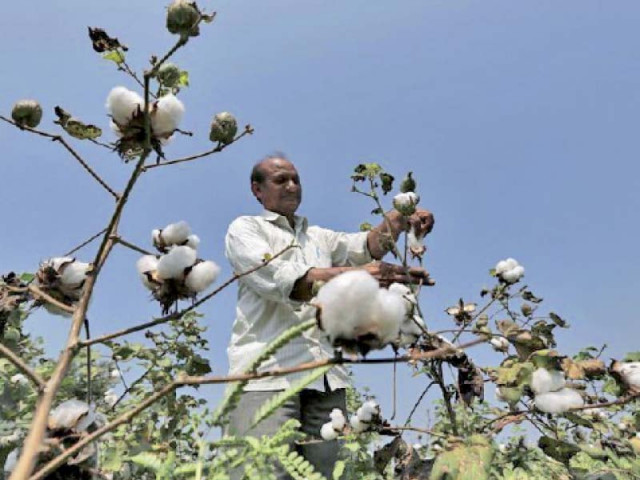Domestic cotton stock to end in February
Textile businesses going to import commodity to continue production

Pakistan’s textile companies are entering into contracts with foreign firms for the import of cotton as domestic stock of the commodity is going to end in February.
According to Karachi Cotton Brokers Forum Chairman Nasim Usman, the depletion of cotton stock in the country by the end of February will adversely impact the small textile mills.
“Such units will be forced to look for other options as opposed to the large textile groups that have signed cotton import deals with international companies as per their need,” he said.
According to the Pakistan Bureau of Statistics (PBS), textile exports grew significantly by nearly 26% year-on-year to $9.4 billion in the first half of current fiscal year 2021-22 and fetched 62% of the overall export earnings.
“Energy crisis is also affecting the output of textile mills in many areas, especially in Sindh and Balochistan,” said Usman. He pointed out that other export and non-export sectors of the economy were also enduring energy scarcity.
“Growth of the textile sector will seemingly slow down in the second half of FY22 due to multiple reasons including the lack of good-quality cotton and inconsistency in gas supply, resulting in production issues,” Topline Securities’ analyst Saad Ziker told The Express Tribune.
Ziker was of the view that the government of Pakistan should increase the target of cotton production to make better-quality cotton available in the market.
He added that the target was fixed below 10 million bales for the ongoing fiscal year whereas the overall requirement was more than 15 million bales.
The analyst emphasised that the shortage of cotton in the country would encourage imports of the commodity and further increase the import bill.
He was of the view that “the government needs to provide consistent energy resources to the textile industry because its production was suffering and export orders were at risk of delay”.
On the other hand, the value-added textile export industry of Karachi expressed disappointment over the government’s silence, indecisiveness and lack of response to the shortage of gas and re-gasified liquefied natural gas (RLNG).
He noted that despite repeated appeals by the businessmen, the government failed to take notice of the situation.
In a statement, Value-Added Textile Forum Chief Coordinator Jawed Bilwani said that factories had been receiving little-to-no supply of fuel for the past over 100 days, which brought the production of exportable merchandise to a halt.
“The government’s promises and commitment to ensure the supply of gas to export industries appear to be deceptive and false,” he added.
Arif Habib Limited analyst Arsalan Hanif said that cotton shortage was a normal phenomenon during January-February of every year because the local stock had been exhausted and industries relied on imports to fill the gap.
Although Pakistan’s cotton yield in the ongoing year was better than the previous year, the demand was much higher than supply, he stated.
Insight Securities analyst Ali Asif said “as per our channel checks, cotton stock will be exhausted in February and new stock will arrive in markets in June.”
“Most textile companies must have predicted the upcoming cotton shortage and stockpiled sufficient volumes to consume during the four months (March-June),” he said.
“If the textile industry is inking agreements for the import of cotton, which is 8-10% more expensive than the local cotton, it is likely to affect the companies’ gross margins because they cannot pass on the increase in cost to end-consumers,” he said.
“Firms have to keep their prices as low as possible to remain competitive in the international market.”
Published in The Express Tribune, January 30th, 2022.
Like Business on Facebook, follow @TribuneBiz on Twitter to stay informed and join in the conversation.



















COMMENTS
Comments are moderated and generally will be posted if they are on-topic and not abusive.
For more information, please see our Comments FAQ